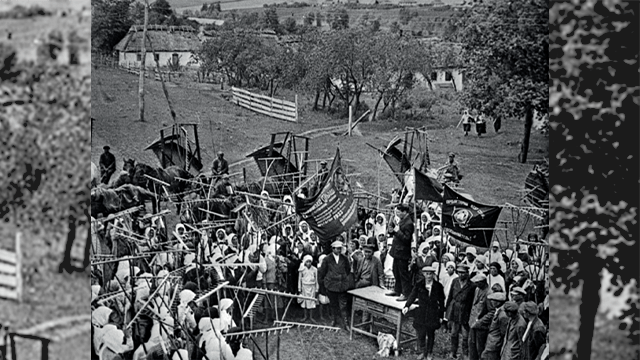
Image taken from Filip Slaveski, Remaking Ukraine. Used with permission.
This talk explores the last famine in Soviet History, which killed around one million people in 1946/47, especially in Ukraine and Moldavia, but about which we know very little. The Soviet state repressed news of the 1946/47 famine at the time, and it remains understudied in English-language scholarship and relatively neglected in Russian and Ukrainian scholarship compared to the Soviet famine in 1932/33. Based on archival sources across the former Soviet space, primarily in Ukriane and Moldova, Filip Slaveski traces the interaction of numerous factors to arrive at a much better understanding of the causes, operation and enduring consequences of the famine, especially of how people experienced it, and why it was the last famine in Soviet History.
Filip Slaveski, Senior Lecturer in Russian/Soviet and East European History at the ANU. A historian of the Soviet Empire, primarily of Ukraine and Russia, his work focuses on the entanglements of mass conflict, famine and political repression, their aftermath and contemporary echoes across the former Soviet space. Some of his publications include: Stalin’s Liquidation Game, Slaveski, F. and Shapoval, Y. (2025); The unlikely case of Oleksandr Shums’kyi, Cambridge, Mass. - Harvard Series in Ukrainian Studies; Slaveski, F. (2021); Remaking Ukraine after WWII: The clash of central and local Soviet power, 1944-1953. Cambridge: Cambridge University Press; Slaveski, F. (2013); The Soviet occupation of Germany: hunger, mass violence and the struggle for peace, 1945-1947, Cambridge: Cambridge University Press.
Location
Speakers
- Filip Slaveski
Event Series
Contact
- David Romney Smith